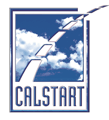CALSTART Statement on National Electric Vehicle
Infrastructure Standards
February 24, 2023
Washington, D.C. – The Federal Highway Administration (FHWA) recently announced final standards for the National Electric Vehicle Infrastructure (NEVI) program. This program will create a coast-to-coast network of electric vehicle (EV) chargers along major highways, making fast-charging sites accessible and functional for drivers across the United States. These standards for the program will reinforce consumer confidence in the network by ensuring these sites are accessible, functioning, and reliable and that the chargers conform to safety and electrical standards and operate across a variety of vehicle systems.
CALSTART applauds several of the program requirements, particularly the mandates for charger interoperability, open communication protocols, and robust network connectivity at sites. In addition, data-reporting requirements will protect privacy and will support a consistent customer experience, as well as enhance planning for future sites to support the growing demand for zero-emission vehicles. CALSTART also applauds FHWA’s removal of potential barriers to the immediate integration of medium- and heavy-duty vehicle accessibility for these sites. Designing these sites for medium- and heavy-duty vehicle refueling will maximize station utilization and is fundamental to fully developing a national network of alternative fueling infrastructure.
John Boesel, CALSTART President and CEO, issued the following statement:
“The NEVI program is a historic federal funding effort that will bring significant additional private capital investments to create a reliable, safe, and accessible national network of EV chargers. These investments will build consumer confidence in EVs while spurring manufacturing jobs here in the United States.
CALSTART applauds the Biden-Harris Administration’s commitment to deploying an EV charging infrastructure network and looks forward to working with FHWA on local implementation efforts to secure the greatest benefits available from this unprecedented, coordinated investment in a national EV charging program.”
